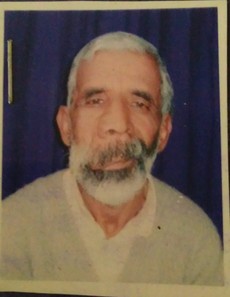Vijay Jardhari
Laureate

Beej Bachao Andolan (Save Seeds Movement)
Farmer and Activist
India
Sustainable Land Management, Biodiversity / Nature Conservation, Climate Change
Indira Gandhi Paryavaran Puraskar (Indira Gandhi Environment Award), 2009
I am small farmer hailing from the Central Himalayan state of Uttarakhand in India. In my youth, I was fortunate to be part of the Chipko Movement of the 1970s which inspired by the Gandhian philosophy, underlined the ecological values of a forest as a provider and conserver of the soil, water and air, and provider of 5 Fs – food, fodder, ferilizer, fuel and fibre - all so essential to our lives as a farming community. The Chipko philosophy helped me, in its aftermath to understand the ill-effects of the Green Revolution policies and practices, and initiate Beej Bachao Andolan (Save Seeds Movement) in the mid-1980s, a non-formal collective of farmers and activists seeking to conserve and preserve local and traditional seeds, crops and traditional agricultural principles and practices. Beej Bachao Andolan remains a non-registered entity as a matter of principle, receives no funds and projects, and continues to be driven by its philosophy and vision that place the small farmers at the centre of one’s being. In a natural progression, in the last some years, we have started to directly reach out to the consumers as well. Small farmers and consumers can be the most natural partners, but both have remained distant from each other. We identify three major achievements of BBA - 1. In the mid-1980s, when we started advocating returning to traditional seeds, crops and practices, we were ridiculed and abused by the ‘development’ bandwagon. Today, when conservation of local and traditional seeds is a widely accepted principle, we stand vindicated. 2. Today we have in our collection or have knowledge of hundreds of local varieties of grains, millets, pulses, lentils, oilseeds, spices et.al. We don't sell seeds but exchange these freely and encourage people to do the same at the local levels. 3. Revival of the “Barahnaja”, a traditional mixed cropping system which had severely marginalized and lost in the onslaught of ‘new’ and 'commercial’ agriculture.

 EN
EN
